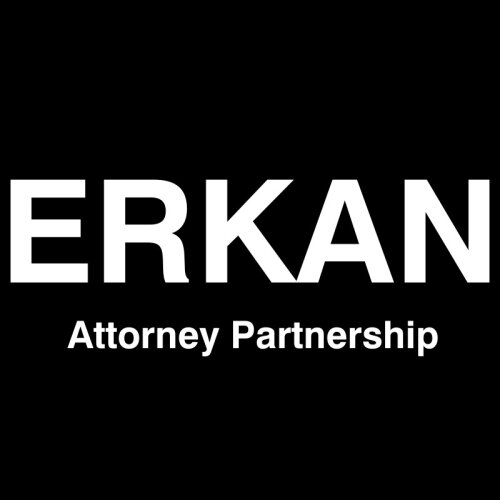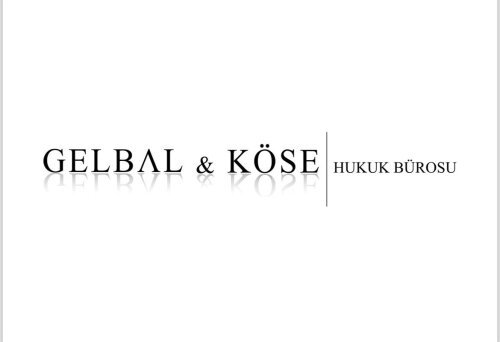Best Venture Capital Lawyers in Istanbul
Share your needs with us, get contacted by law firms.
Free. Takes 2 min.
List of the best lawyers in Istanbul, Turkey
About Venture Capital Law in Istanbul, Turkey
Istanbul is increasingly becoming a hub for venture capital (VC) in Turkey. The city plays a major role in driving the country's start-up ecosystem, with various international and local VC firms investing in innovative ideas and emerging companies. The venture capital landscape here has been rapidly evolving, supported by favorable governmental policies, a young tech-savvy population, and the city's strategic location bridging Europe and Asia. The focus areas for venture capital investments include technology, fintech, healthcare, and consumer products. Understanding the legal framework of venture capital activities in Istanbul is crucial for entrepreneurs and investors to navigate the marketplace effectively.
Why You May Need a Lawyer
Engaging a lawyer experienced in venture capital is essential for several reasons. These include:
- Structuring Investments: Properly structuring a VC deal can be complex, involving various legal considerations like shareholder agreements and securities laws.
- Due Diligence: In-depth due diligence is crucial before signing a deal, including an assessment of legal risks related to intellectual property, tax obligations, and compliance with regulatory requirements.
- Contract Drafting and Negotiation: Lawyers help draft and negotiate agreements that protect your interests, such as investment agreements, stock options, and exit strategies.
- Regulatory Compliance: Ensuring that all activities comply with Turkey’s business and financial regulations is vital to avoid legal pitfalls.
Local Laws Overview
Venture capital in Istanbul is governed by a combination of Turkish Corporate Law and specific regulations aimed at encouraging investment in start-ups. Key aspects include:
- Company Formation: Understanding different business entity types (such as joint-stock companies or limited liability companies) and choosing the most appropriate for structuring your venture.
- Foreign Investment: Laws governing how foreign investors can engage with Turkish companies, including restrictions and permissions necessary for foreign ownership.
- Regulatory Authorities: Agencies like the Capital Markets Board of Turkey which oversee operations, ensuring compliance with local laws.
- Tax Incentives and Barriers: Various incentives exist to promote investment in certain industries or regions; understanding the tax implications is crucial for financial planning.
Frequently Asked Questions
What is the typical structure of a VC deal in Istanbul?
VC deals typically involve equity financing, with investors purchasing a portion of company shares in exchange for capital. Convertible notes and SAFE notes are also used.
Are there restrictions on foreign VC investments in Turkey?
While foreign direct investment is generally welcomed, certain strategic sectors may have restrictions, and compliance with regulations is required.
How does one set up a VC fund in Istanbul?
Setting up a VC fund requires compliance with legal formalities including registration, obtaining necessary licenses, and choosing an appropriate business structure.
What are the tax implications of venture capital investments?
Investors may be eligible for various tax incentives, but they also need to be aware of capital gains tax and tax liabilities associated with dividends.
How important is intellectual property (IP) protection for startups?
IP protection is critical and involves securing patents, trademarks, and copyrights to safeguard the business’s innovations and brand.
What is due diligence, and why is it necessary?
Due diligence is a comprehensive investigation process to evaluate a business, assessing potential legal risks and framework compliance.
Can startups offer employee stock options?
Yes, startups in Turkey can offer employee stock options as part of their compensation and incentives packages, following specific guidelines.
How can one exit an investment in Turkey?
Common exit strategies include public offers, M&A transactions, or selling shares to other investors. The right choice depends on the investment’s structure and market conditions.
What legal documents are crucial in a VC deal?
Key documents include the term sheet, investment agreement, shareholder agreement, and documents related to due diligence.
How does one ensure compliance with Turkish business regulations?
Compliance involves adhering to corporate, financial, and tax regulations, often requiring the assistance of experienced legal counsel.
Additional Resources
To gain more insight into venture capital in Istanbul, consider exploring the following resources:
- Governmental Bodies: Capital Markets Board of Turkey (CMB), Small and Medium Enterprises Development Organization of Turkey (KOSGEB)
- Organizations: Turkish Venture Capital Association (TVCA), Turkish Union of Chambers and Commodity Exchanges (TOBB)
- Reports: Industry reports and analyses by consultancy firms and financial institutions on the Turkish venture capital market.
Next Steps
If you require legal assistance in venture capital, consider these steps:
- Research and identify legal professionals or firms specializing in venture capital law.
- Schedule consultations to discuss your case, understand the services offered, and evaluate cost implications.
- Prepare necessary documentation and details about your business or investment project to facilitate efficient legal consultation.
- Once comfortable, retain a lawyer or legal firm to provide ongoing support throughout your venture capital endeavors.
Lawzana helps you find the best lawyers and law firms in Istanbul through a curated and pre-screened list of qualified legal professionals. Our platform offers rankings and detailed profiles of attorneys and law firms, allowing you to compare based on practice areas, including Venture Capital, experience, and client feedback.
Each profile includes a description of the firm's areas of practice, client reviews, team members and partners, year of establishment, spoken languages, office locations, contact information, social media presence, and any published articles or resources. Most firms on our platform speak English and are experienced in both local and international legal matters.
Get a quote from top-rated law firms in Istanbul, Turkey — quickly, securely, and without unnecessary hassle.
Disclaimer:
The information provided on this page is for general informational purposes only and does not constitute legal advice. While we strive to ensure the accuracy and relevance of the content, legal information may change over time, and interpretations of the law can vary. You should always consult with a qualified legal professional for advice specific to your situation.
We disclaim all liability for actions taken or not taken based on the content of this page. If you believe any information is incorrect or outdated, please contact us, and we will review and update it where appropriate.















